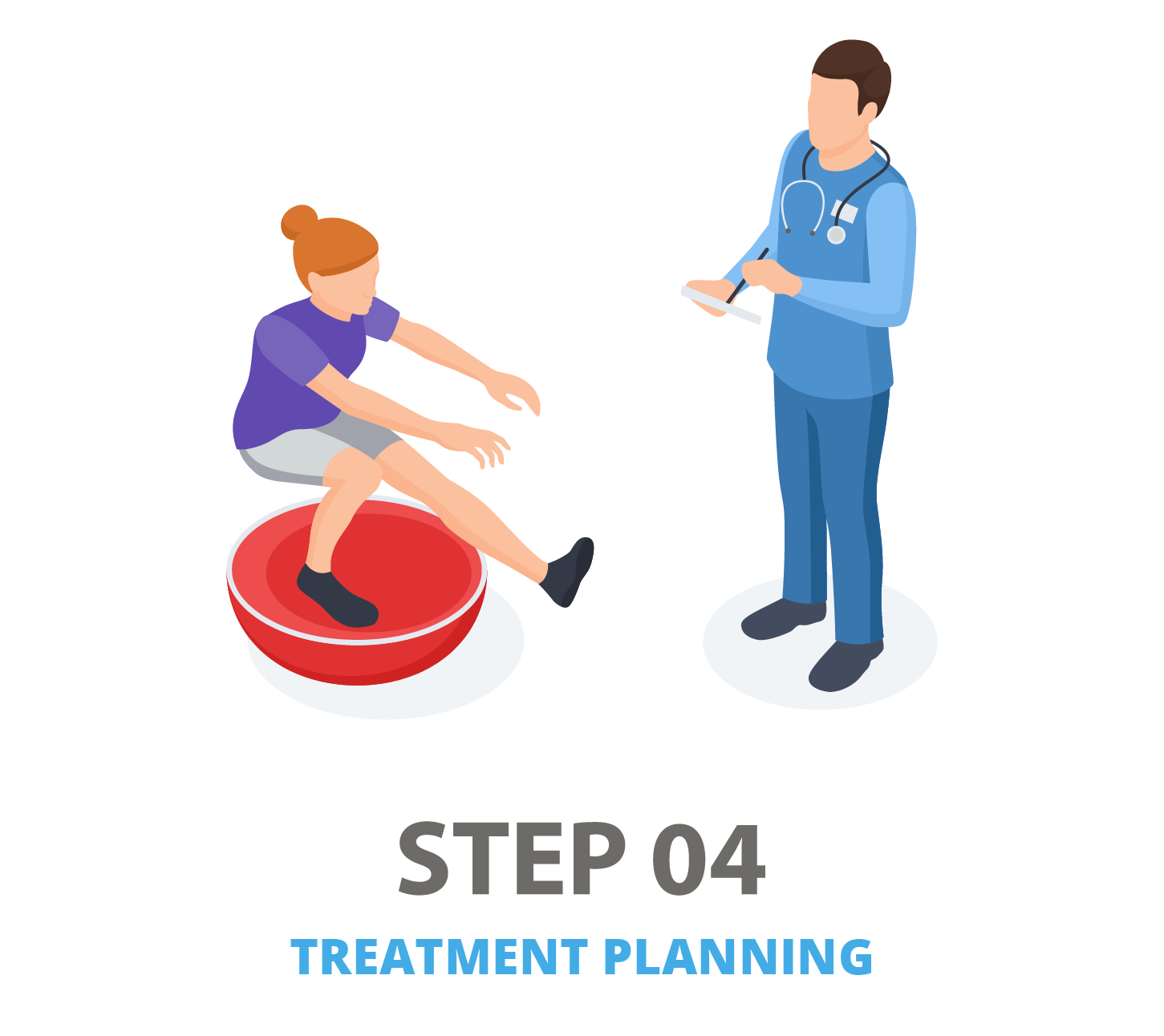Physiotherapy


Get back to Forum
What is physiotherapy?
Physiotherapy is a holistic healthcare approach that prevents, evaluates, and treats physical issues. It involves various techniques like manual therapy and exercise, benefiting people of all ages with conditions ranging from injuries to neurological disorders. Physiotherapists diagnose problems, create personalized plans, and empower individuals in their recovery, focusing on improving strength, flexibility, and coordination for overall well-being.
Physiotherapy stands as a cornerstone in the field of healthcare, offering a personalized and integrative approach to physical well-being. Whether recovering from an injury, managing a chronic condition, or striving for peak athletic performance, the expertise of physiotherapists can make a significant difference in the lives of individuals.
EXPERT REHABILITATION AND PAIN MANAGEMENT FOR A HEALTHIER, ACTIVE LIFESTYLE
Our Specialties
Physiotherapy extends beyond rehabilitation and is widely utilized in various healthcare settings. Some key applications include:

ORTHOPEDIC
PHYSIOTHERAPY
Focuses on musculoskeletal conditions, including fractures, joint replacements, and sports injuries.

NEUROLOGICAL
PHYSIOTHERAPY
Addresses conditions like stroke, spinal cord injuries, and multiple sclerosis to improve mobility and function.

CARDIORESPIRATORY
PHYSIOTHERAPY
Assists individuals with heart and lung conditions, promoting respiratory function and cardiovascular health

PEDIATRIC
PHYSIOTHERAPY
Supports children with developmental delays, congenital conditions, or injuries to optimize physical development.

GERIATRIC
PHYSIOTHERAPY
Aims to enhance the mobility and independence of elderly individuals, addressing age-related conditions and preventing falls.
The 9 step Rehabilitation process

Initially, a comprehensive assessment and evaluation of the patient’s condition are performed. The physical therapist collects detailed information about the patient's medical history, symptoms, and functional challenges. Physical examinations and tests are carried out to pinpoint the underlying problems.

Following the assessment, the physical therapist provides a diagnosis, identifying the primary issues and crafting a treatment plan tailored to the patient’s specific needs.

The physical therapist and patient collaborate to establish SMART (Specific, Measurable, Achievable, Relevant, Time-bound) goals. These objectives might involve enhancing range of motion, alleviating pain, building strength, and improving overall function.ilored to the patient’s specific needs.

A thorough treatment plan is created by the physical therapist, based on the assessment findings and established goals. This plan may encompass various approaches, including therapeutic exercises, manual therapy, modalities (such as heat or ice), and patient education

The treatment plan is actively implemented in this phase. Patients engage in exercises and activities designed to boost strength, flexibility, balance, and functional capabilities. Manual therapy techniques may also be utilized to address specific concerns.

The therapist consistently monitors the patient’s progress throughout the therapy. Adjustments to the treatment plan are made as needed, depending on the patient’s response and any changes in their condition.

Education plays a vital role in physical therapy. Patients are informed about their condition, body mechanics, and techniques for preventing future injuries. They may also receive instructions on home exercises.

A home exercise program is often provided to support the progress made during therapy sessions. Adhering to this program is crucial for achieving the best results.

As the patient advances, the focus may shift to functional training. This involves activities that simulate daily tasks, helping the individual regain the ability to perform everyday activities with greater ease.

1 - Assessment and Evaluation
Initially, a comprehensive assessment and evaluation of the patient’s condition are performed. The physical therapist collects detailed information about the patient's medical history, symptoms, and functional challenges. Physical examinations and tests are carried out to pinpoint the underlying problems.
2 - Diagnosis
Following the assessment, the physical therapist provides a diagnosis, identifying the primary issues and crafting a treatment plan tailored to the patient’s specific needs.
3 - Goal Setting
The physical therapist and patient collaborate to establish SMART (Specific, Measurable, Achievable, Relevant, Time-bound) goals. These objectives might involve enhancing range of motion, alleviating pain, building strength, and improving overall function.ilored to the patient’s specific needs.
4 - Treatment Planning
A thorough treatment plan is created by the physical therapist, based on the assessment findings and established goals. This plan may encompass various approaches, including therapeutic exercises, manual therapy, modalities (such as heat or ice), and patient education
5 - Therapeutic Interventions
The treatment plan is actively implemented in this phase. Patients engage in exercises and activities designed to boost strength, flexibility, balance, and functional capabilities. Manual therapy techniques may also be utilized to address specific concerns.
6 - Monitoring and Adjustments
The therapist consistently monitors the patient’s progress throughout the therapy. Adjustments to the treatment plan are made as needed, depending on the patient’s response and any changes in their condition.
7 - Patient Education
Education plays a vital role in physical therapy. Patients are informed about their condition, body mechanics, and techniques for preventing future injuries. They may also receive instructions on home exercises.
8 - Home Exercise Program
A home exercise program is often provided to support the progress made during therapy sessions. Adhering to this program is crucial for achieving the best results.
9 - Functional Training
As the patient advances, the focus may shift to functional training. This involves activities that simulate daily tasks, helping the individual regain the ability to perform everyday activities with greater ease.
Why choose Physiotherapy?
Benefits of physiotherapy
Physiotherapy, a dynamic and evolving field within healthcare, holds a myriad of benefits that extend far beyond the traditional view of rehabilitation. This holistic approach to physical well-being encompasses diverse techniques and interventions, each tailored to address unique individual needs. From pain management to enhanced mobility, the advantages of physiotherapy are profound and transformative.
PAIN MANAGEMENT
Through targeted exercises and manual therapy, physiotherapy helps alleviate pain associated with various conditions.
One of the primary benefits of physiotherapy lies in its ability to effectively manage pain. Whether stemming from musculoskeletal injuries, chronic conditions, or post-surgical recovery, our physiotherapists employ a range of techniques to alleviate discomfort. Manual therapy, exercises, and modalities like heat or cold therapy are customized to target specific pain points, promoting relief and improved quality of life.
IMPROVED MOBILITY AND FLEXIBILITY
Physiotherapy enhances range of motion, flexibility, and overall mobility, facilitating independence in daily activities.
Physiotherapy plays a pivotal role in restoring and enhancing mobility and flexibility. Through targeted exercises and stretching routines, our physiotherapists work to improve range of motion in joints and muscle flexibility. This not only aids in day-to-day activities but is particularly beneficial for individuals recovering from injuries, surgeries, or those facing mobility challenges due to age or neurological conditions.
INJURY PREVENTION
By identifying and addressing movement patterns and weaknesses, physiotherapy helps prevent injuries and promotes long-term well-being.
Prevention is at the core of physiotherapy. Our physiotherapists work proactively with individuals to identify and address risk factors that may lead to injuries. By enhancing body awareness, correcting posture, and incorporating targeted exercises, physiotherapy serves as a powerful tool in preventing injuries, especially in athletes and individuals with physically demanding lifestyles.
HOLISTIC WELLNESS
Physiotherapists consider the whole person, addressing not only physical symptoms but also psychological and social aspects, promoting holistic wellness.
Physiotherapy embraces a holistic approach, considering not only the physical aspects of health but also the psychological and social dimensions. Physiotherapists often work with patients to address mental health challenges associated with physical conditions, fostering a sense of well-being and resilience.
IMPROVED STRENGTH AND FUNCTION
Physiotherapy is a key player in the realm of strength and function improvement. By identifying and addressing muscular imbalances, weaknesses, and dysfunctional movement patterns, physiotherapists design tailored exercise programs. These programs aim to build strength, coordination, and overall physical function, empowering individuals to regain control over their bodies and live more active lives.
RESPIRATORY AND CARDIOVASCULAR HEALTH
Physiotherapy extends its benefits to the respiratory and cardiovascular systems. In conditions such as chronic obstructive pulmonary disease (COPD) or cardiac rehabilitation, physiotherapists employ exercises and breathing techniques to enhance respiratory function and cardiovascular health. This not only improves endurance but also contributes to an overall healthier lifestyle.
POST-SURGICAL REHABILITATION:
For individuals undergoing surgical procedures, physiotherapy is instrumental in the recovery process. Physiotherapists collaborate with surgeons to create comprehensive rehabilitation plans that address specific post-operative needs. These plans typically include exercises to rebuild strength, restore mobility, and ensure a smooth transition back to daily activities.
ENHANCED SPORTS PERFORMANCE
Physiotherapy enhances range of motion, flexibility, and overall mobility, facilitating independence in daily activities.


Experience full body healing
Start your healing Journey
Our service is dedicated to individuals confronting pain, injuries, or mobility disorders. We deploy a fusion of hands-on techniques, exercise routines, and education provided by our adept physiotherapists, all aimed at mitigating your symptoms and facilitating your health targets.
Physiotherapy is a transformative force in healthcare, offering a wide array of benefits that extend well beyond the conventional notions of rehabilitation. From pain management and enhanced mobility to injury prevention and holistic well-being, the impact of physiotherapy is profound. As individuals increasingly recognize the value of proactive and personalized care, physiotherapy stands as a beacon of hope, guiding people toward optimal health and a more active, fulfilling life. Whether recovering from an injury, managing a chronic condition, or striving for peak performance, physiotherapy is a gateway to a healthier, more vibrant future.

We direct Bill to your insurance
Cost & coverage
Like many of our services, our physiotherapy treatments are often covered through employer, auto, or disability insurance. So treatments can be available at little or no cost to you. Get in touch or schedule a consultation to learn more.
Are you ready to start your healing Journey?
Book an Appointment
Our team of experts will accurately diagnosed and determine the most efficient healing Journey for your specific ailments. So what are you waiting for? Take the first step towards a pain-free and healthy life today!
